4 Questions on NAD/NADH Testing Answered
Unlocking the Secrets of Cellular Energy
4 min read
![]() Dr. Andrea Gruszecki, ND
:
August 18, 2022 at 1:06 PM
Dr. Andrea Gruszecki, ND
:
August 18, 2022 at 1:06 PM

Many clinicians are familiar with the link between depression and low thyroid (hypothyroid) function. Clinicians may also be familiar with the known association between dementia and depression later in life. A new study has uncovered a potential link between the two: hypothyroidism.
A large Taiwanese population study has uncovered a link between a history of hypothyroidism and dementia. The study found that, when other likely risk factors (gender, medical history, etc.) were controlled for, people over 65 years old with a hypothyroid history had an 81% increase in dementia risk. The study also found that dementia risk was further increased in those needing thyroid hormone replacement.
Another large multi-ethnic study of US citizens between 35-74 years old supports the hypothyroid-dementia association. This study found that the prevalence of thyroid dysfunction was » 25% in older adults and recommended more consistent screening of this age group for thyroid dysfunction.
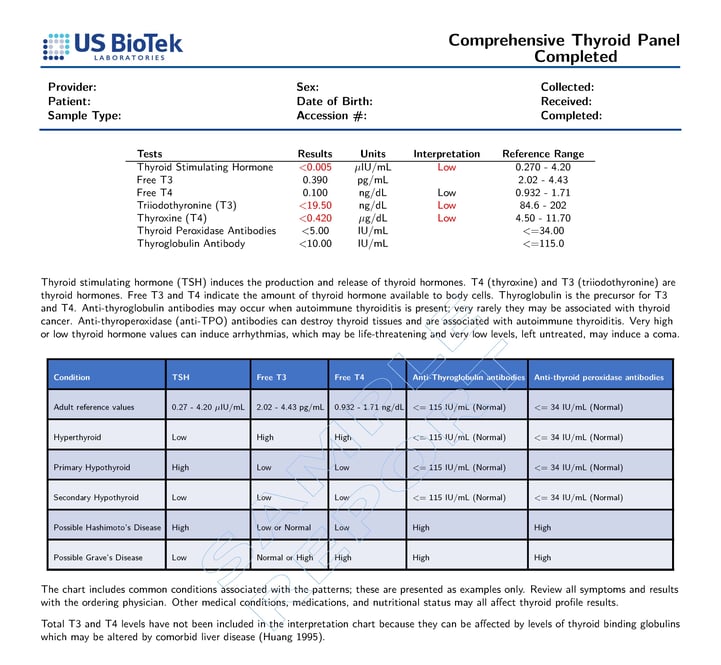
So, how are dementia, hypothyroidism, and depression connected?
Physiological changes in the adult generation of nerve cells may be the common denominator. Thyroid hormone is important for the survival of adult neural stem cells – the thyroid hormone directs the stem cell towards a neural phenotype, and promotes the aerobic mitochondrial function needed to mature the stem cells into new neurons. Animal studies indicate that prolonged hypothyroidism reduced the number of neural stem cells available, and that those cells had decreased mitochondrial activity. The study also showed that the enzyme SIRT1 helped determine if the stem cell became a neuron or a myelinating support cell (oligodendrocyte) that promotes neurotransmission.
Thyroid hormone is not, of course, the whole story. Adult neurogenesis also depends, in part, on the status of sex hormones, prolactin, and corticosteroids. Adrenal steroids increase with stress and tend to inhibit neurogenesis. Animal studies demonstrate that decreasing high glucocorticoid levels can promote neurogenesis. Animal studies also indicate that repeated or chronic stress may suppress neurogeneration in the hippocampus, an area of the brain that is associated with many neurological and psychiatric disorders such as depression. Degeneration of the hippocampus is also a consistent finding in Alzheimer’s dementia.
Mitochondrial function is another common denominator between thyroid, depression, and dementia. Thyroid hormone has been shown to enhance mitochondrial function in human tissues. Metabolomic studies implicate mitochondrial dysfunction as a causative factor in depression. Other studies indicate that age-related cognitive impairment and Alzheimer’s are both associated with mitochondrial dysfunction as well. Thyroid hormone status is associated with diabetes, which can drive inflammation and further dysregulate mitochondrial function.
The last common denominator may be the pervasive presence of endocrine-disrupting chemicals in the environment. Phthalates and other chemicals have been shown to decrease levels of thyroid hormones (T4 and T3), increase blood glucose levels, and alter mitochondrial function.
Once thyroid function has been tested, it may be supported with nutrients. Hypothyroid patients may benefit from the precursor amino acid tyrosine along with iodine. Thyroid antibody levels may improve with selenium supplementation. While diet may play a role, studies indicate that most suspected dietary thyroid inhibitors (goitrogens) are only problematic when nutritional deficiencies are present. The goitrogens that remain of concern, once nutritional status has been corrected, include millet (Pennisetum glaucum or P. americanum) and potentially cassava (Manihot esculenta). Brominated cooking oils, flours or soft drinks.
Mitochondrial function can be evaluated with an Organic Acids test, and the test can also provide clues about other aspects of patient health that may affect dementia risk, including:
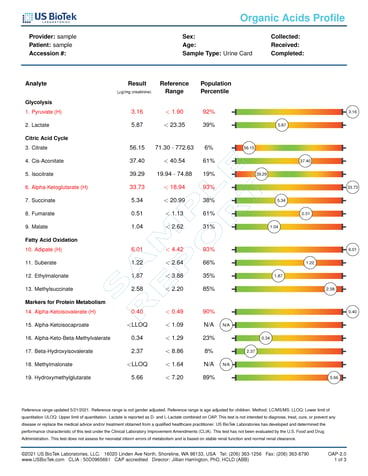
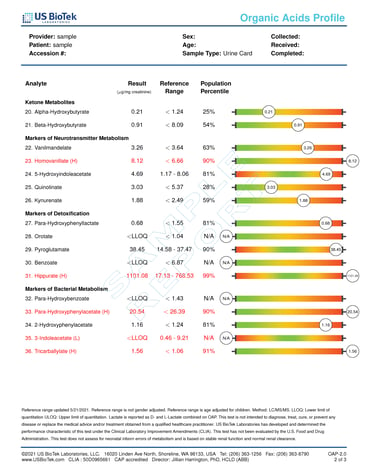
And we can screen for recent exposure to phthalates and other chemical exposures with an Environmental Pollutants profile and then detoxify the patient using specific nutritional supports for the chemicals detected. A reduction in toxic burden may also improve mitochondrial function and hormone balance, further reducing the risk of dementia, depression, or thyroid dysfunction.
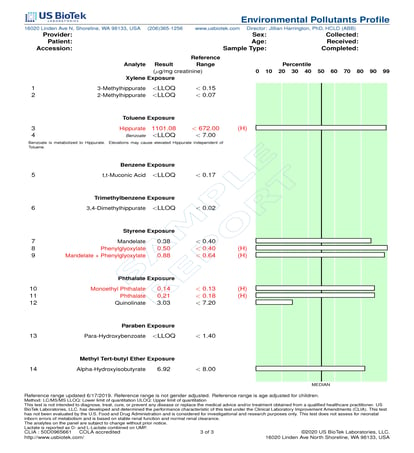
The evaluation of thyroid and mitochondrial function, and a screen for chemical exposures may improve patient health and may decrease the risk of dementia.
Allen J, Romay-Tallon R, Brymer KJ, Caruncho HJ, Kalynchuk LE. Mitochondria and Mood: Mitochondrial Dysfunction as a Key Player in the Manifestation of Depression. Front Neurosci. 2018 Jun 6;12:386.
Anand KS, Dhikav V. Hippocampus in health and disease: An overview. Ann Indian Acad Neurol. 2012 Oct;15(4):239-46.
Apaijai N, Sriwichaiin S, Phrommintikul A, Jaiwongkam T, Kerdphoo S, et al. Cognitive impairment is associated with mitochondrial dysfunction in peripheral blood mononuclear cells of elderly population. Sci Rep. 2020 Dec 8;10(1):21400.
Babiker A, Alawi A, Al Atawi M, Al Alwan I. The role of micronutrients in thyroid dysfunction. Sudan J Paediatr. 2020;20(1):13-19.
Barnes DE, Yaffe K, Byers AL, McCormick M, Schaefer C, Whitmer RA. Midlife vs late-life depressive symptoms and risk of dementia: differential effects for Alzheimer disease and vascular dementia. Arch Gen Psychiatry. 2012 May;69(5):493-8.
Byers AL, Yaffe K. Depression and risk of developing dementia. Nat Rev Neurol. 2011 May 3;7(6):323-31.
Calsolaro V, Pasqualetti G, Niccolai F, Caraccio N, Monzani F. Thyroid Disrupting Chemicals. Int. J. Mol. Sci. 2017;and18(12):2583.
Duntas LH, Orgiazzi J, Brabant G. The interface between thyroid and diabetes mellitus. Clin Endocrinol (Oxf). 2011 Jul;75(1):1-9.
Gothié JD, Sébillot A, Luongo C, Legendre M, Nguyen Van C, Le Blay K, Perret-Jeanneret M, Remaud S, Demeneix BA. Adult neural stem cell fate is determined by thyroid hormone activation of mitochondrial metabolism. Mol Metab. 2017 Nov;6(11):1551-1561.
Hage MP, Azar ST. The Link between Thyroid Function and Depression. J Thyroid Res. 2012;2012:590648.
Katon W, Pedersen HS, Ribe AR, Fenger-Grøn M, Davydow D, Waldorff FB, Vestergaard M. Effect of depression and diabetes mellitus on the risk for dementia: a national population-based cohort study. JAMA Psychiatry. 2015 Jun;72(6):612-9.
Lennington JB, Yang Z, Conover JC. Neural stem cells and the regulation of adult neurogenesis. Reprod Biol Endocrinol. 2003 Nov 13;1:99.
Marroqui L, Tudurí E, Alonso-Magdalena P, Quesada I, Nadal Á, Dos Santos RS. Mitochondria as target of endocrine-disrupting chemicals: implications for type 2 diabetes. J Endocrinol. 2018 Nov 1;239(2):R27-R45.
Perez Ortiz JM, Swerdlow RH. Mitochondrial dysfunction in Alzheimer's disease: Role in pathogenesis and novel therapeutic opportunities. Br J Pharmacol. 2019 Sep;176(18):3489-3507.
Rappaport J. Changes in Dietary Iodine Explains Increasing Incidence of Breast Cancer with Distant Involvement in Young Women. J Cancer. 2017 Jan 13;8(2):174-177.
Sears ME, Genuis SJ. Environmental determinants of chronic disease and medical approaches: recognition, avoidance, supportive therapy, and detoxification. J Environ Public Health. 2012;2012:356798.
Thomas RM, Peterson DA. Even neural stem cells get the blues: evidence for a molecular link between modulation of adult neurogenesis and depression. Gene Expr. 2008;14(3):183-93.
Waldau B, Shetty AK. Behavior of neural stem cells in the Alzheimer brain. Cell Mol Life Sci. 2008 Aug;65(15):2372-84.
Vidali S, Chéret J, Giesen M, Haeger S, Alam M, Watson REB, Langton AK, Klinger M, Knuever J, Funk W, Kofler B, Paus R. Thyroid Hormones Enhance Mitochondrial Function in Human Epidermis. J Invest Dermatol. 2016 Oct;136(10):2003-2012.
Wieland DR, Wieland JR, Wang H, Chen YH, Lin CH, Wang JJ, Weng CH. Thyroid Disorders and Dementia Risk: A Nationwide Population-Based Case-Control Study. Neurology. 2022 Jul 6:10.1212/WNL.0000000000200740.

Unlocking the Secrets of Cellular Energy
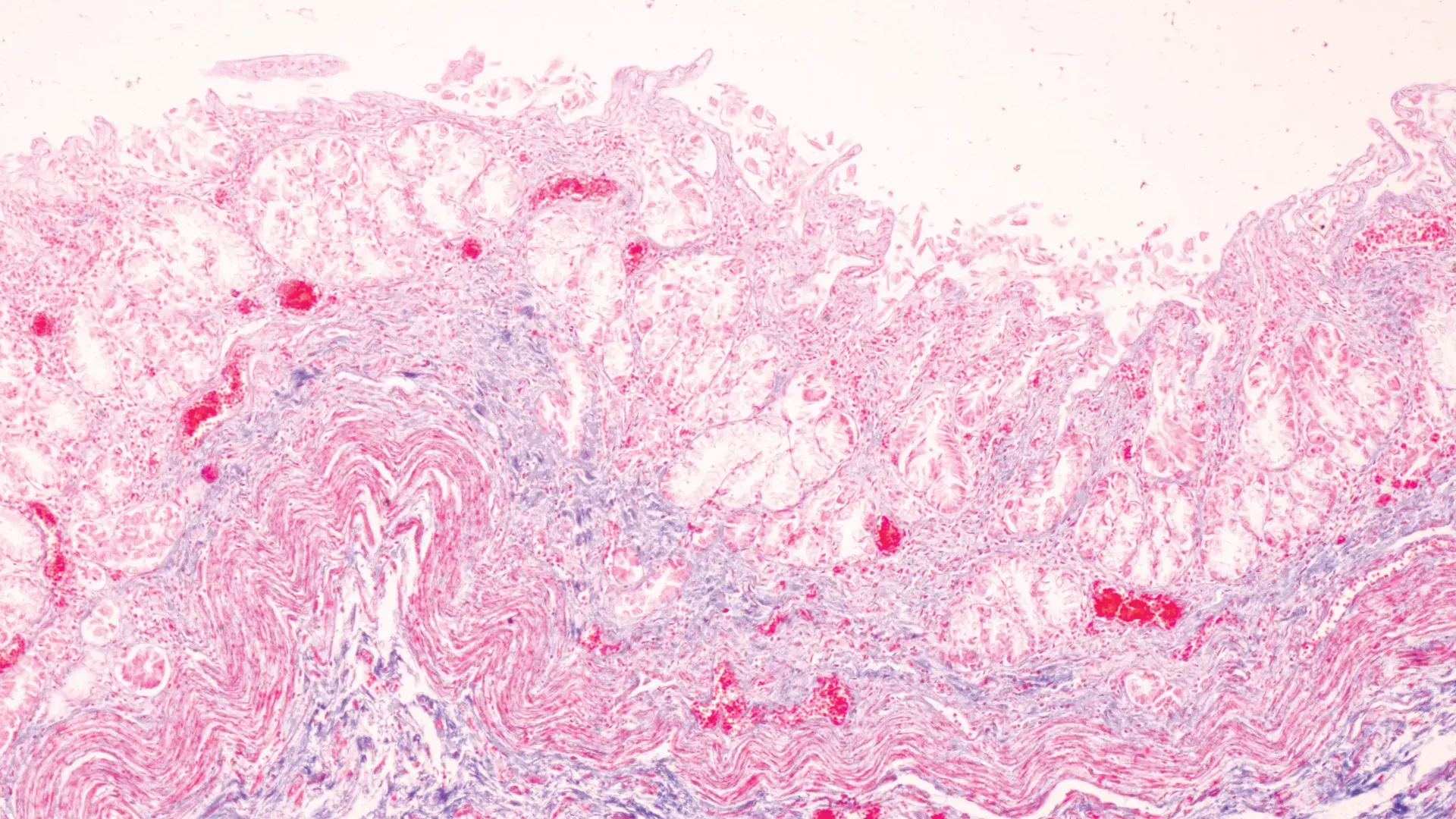
Short chain fatty acids (SCFAs) are organic acids produced by bacterial fermentation of dietary fibre and resistant starch. Enterocytes and...

Zonulin has emerged as a popular marker to assess the integrity of the intestinal mucosal barrier. Discovered by Dr Alessio Fasano, Zonulin...